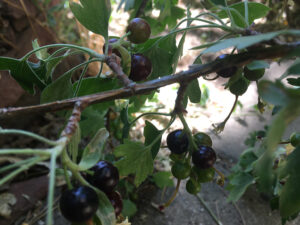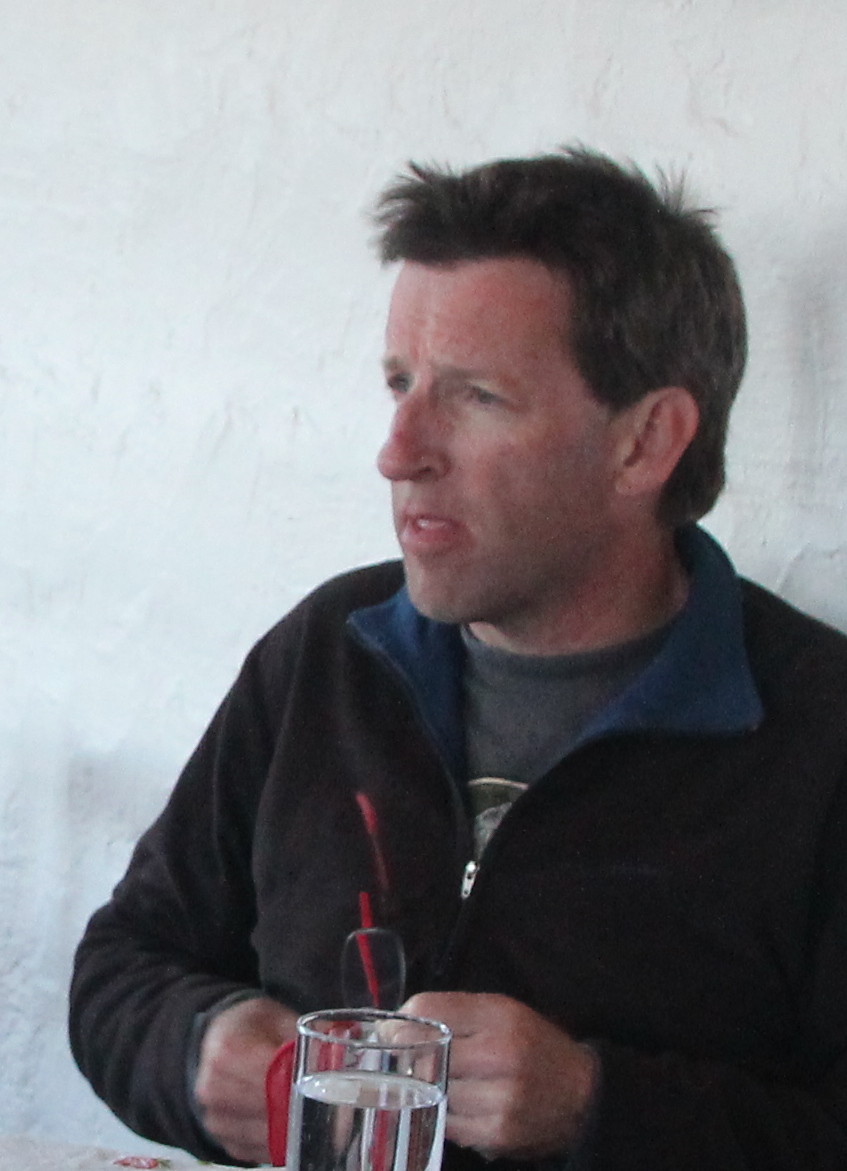 Surely you know some irritating over-achiever—for who hasn’t?: the annoying person who shows up in the classroom or kitchen or conference room, or on the athletic field, and seemingly without any effort at all pulls off a perfect meal or project or performance, showing up everyone else who has been working so very hard to accomplish at a lower level. The overachiever is Usain Bolt, Greta Garbo, Robert Johnson, all those with a seemingly magical ability that puts them in a league entirely their own.
Surely you know some irritating over-achiever—for who hasn’t?: the annoying person who shows up in the classroom or kitchen or conference room, or on the athletic field, and seemingly without any effort at all pulls off a perfect meal or project or performance, showing up everyone else who has been working so very hard to accomplish at a lower level. The overachiever is Usain Bolt, Greta Garbo, Robert Johnson, all those with a seemingly magical ability that puts them in a league entirely their own.
I’m looking at one of them—or lots of them—in my garden right now. There I am, facing the daily tasks of planting and transplanting and watering and adding compost, trying to baby along a few greens, some bulbs of garlic, the still-delicate shoots of corn and pumpkins and hot peppers. It’s a lot of work, as Flagstaff gardeners know all too well, contending with the long May-June dry season, the desiccating winds, the unexpectedly cold nights, the sudden invasions of flea beetles or aphids. And then all I have to do is look up from my work in the vegetable garden and my eye can’t help but fall on my gardening nemesis.
What I mean is the currant bushes that grow on either side. They’re scraggly plants, head-high, though the weak boughs usually dangle lower. Two months ago they burst forth into sprays of lovely yellow flowers, but still they are hard to groom into the densely manicured shapes that many expect of shrubberies, and I don’t often see them used in landscaping.
Now, even after a springtime of crazy winds and hard freezes, they’re heavy-bodied with gobs of little green berries that will darken, seemingly overnight, into ripe black currants. I know, I know: I am going to sound ungrateful here. I am going to sound like I no doubt did in high school upon hearing about another straight-A performance from Matthew Rosenblum, the effortlessly brilliant kid who pretty much defined nerdiness with his tight curls, glasses, and thin-as-a-noodle physique and went on to get a perfect GPA at Yale—and who at the same time had what must have been my town’s best collection of mint-condition comic books. And he was popular, too—how did he pull that off? Was it because he was the only kid in AP Chemistry who actually had the nerve to stand under the emergency shower and activate it, just to see what it was like? Or was it because he was, above all, his own person at a time of life when that role is one of the hardest to realize?
So yes, I will sound ungrateful when I write that I am envious of the currant bushes and how they are this year simply loaded down with fruit when the sum total of the effort I have put into caring for them over the years, the sum total of how much the currants have needed me, is simply: zero. Which is by the way the amount of fruit we are going to be harvesting this year from the grapes, apples, pears, and peach trees we have planted over our years presiding optimistically over our yard. Because those budding fruits, so laboriously bought and tended, all froze back in April or May.
The currants, they need me for their performance as much as Matthew Rosenblum did. He didn’t need my help studying, and they need no supplemental water, no trimming, no fertilizer, no care. They even seem heedless of temperature. They simply proliferate on their own, so much so that as I try once again to nurse some tender lettuce heads I feel a strong temptation to simply give up and turn the entire plot over to the currants. Not that I could, since the currants aren’t the only self-willed plants in the yard: there’s also the bindweed, and the cheatgrass, and the vinca, and the other weeds that have nothing edible to offer us. Somehow I believe the self-willedness of these plants is the lesson: if I were to plant currants deliberately, they’d probably falter, fail to thrive.
The only answer, I know, is the same approach I took with Matthew Rosenblum when graduation day came: I’ll have to suck up my own pride, and offer my hand in congratulations, and embrace what the currants offer. Which is, after all, a bounty of fresh fruit that the Internet tells me is rich in Vitamin C, and contains enough natural gelling agents that it’s perfect for jam. I’m excited to try it. I should be happy, right?
 Except, no. Here is another way the best-laid plans go awry. It’s deadline day, and I’m 800 words into my column, close to the target length, and now instead of wrapping up with a pleasant homily about giving up our pretensions of control and enjoying what nature gives us I am watching from a distance as flames leap incomprehensive hundreds of feet into the smoke-curdled air above the ridge of the San Francisco Peaks. It’s the fourth big one of recent years and, given the wind forecast and the plethora of dry fuels high up on the Peaks, it is certainly going to rival and likely exceed the others in the damage it does. Even if firefighters manage to keep it out of neighborhoods, the threat of post-fire flooding is going to be extreme. Some faces of the Peaks, at least, are going to be changed for decades if not much longer.
Except, no. Here is another way the best-laid plans go awry. It’s deadline day, and I’m 800 words into my column, close to the target length, and now instead of wrapping up with a pleasant homily about giving up our pretensions of control and enjoying what nature gives us I am watching from a distance as flames leap incomprehensive hundreds of feet into the smoke-curdled air above the ridge of the San Francisco Peaks. It’s the fourth big one of recent years and, given the wind forecast and the plethora of dry fuels high up on the Peaks, it is certainly going to rival and likely exceed the others in the damage it does. Even if firefighters manage to keep it out of neighborhoods, the threat of post-fire flooding is going to be extreme. Some faces of the Peaks, at least, are going to be changed for decades if not much longer.
Here in town, the high school football players are doing their summer scrimmage on an immaculate green field that except for the sharp-edged mountain background could be Anywhere USA. Life goes on. A few miles away and three thousand feet higher, Nature is doing Their thing—for if there’s any being that truly deserves today’s new ungendered pronoun, it’s Them. And that thing is happening not at the intimate level of the backyard, but at a monstrous level that puts to the lie all our brittle fantasies about control.
Nature Bats Last, goes the old enviro bumper sticker. As the future intrudes ever more violently into the present, we need to shed those old illusions about controlling Them for the sake of our appetites. Today, as they do every day, our national leaders religiously observed their ritual of punting any meaningful action about our changing climate off into what they still believe to be the future. In their absence, our task is to figure out what to do about Us.
Photos:
Ripening currants
Pipeline Fire, June 13, 2022

